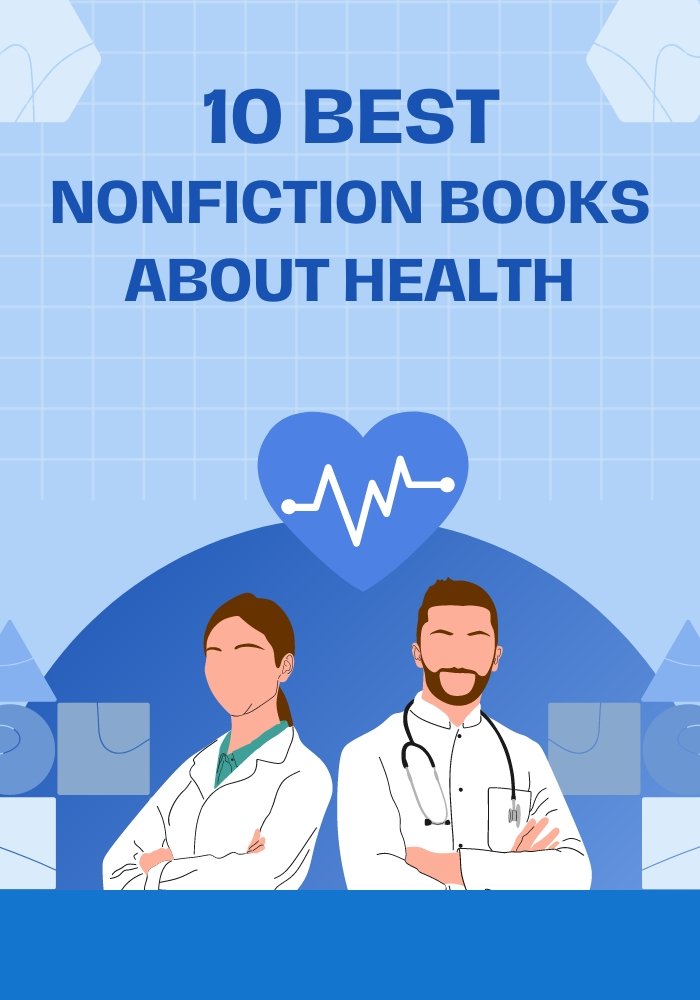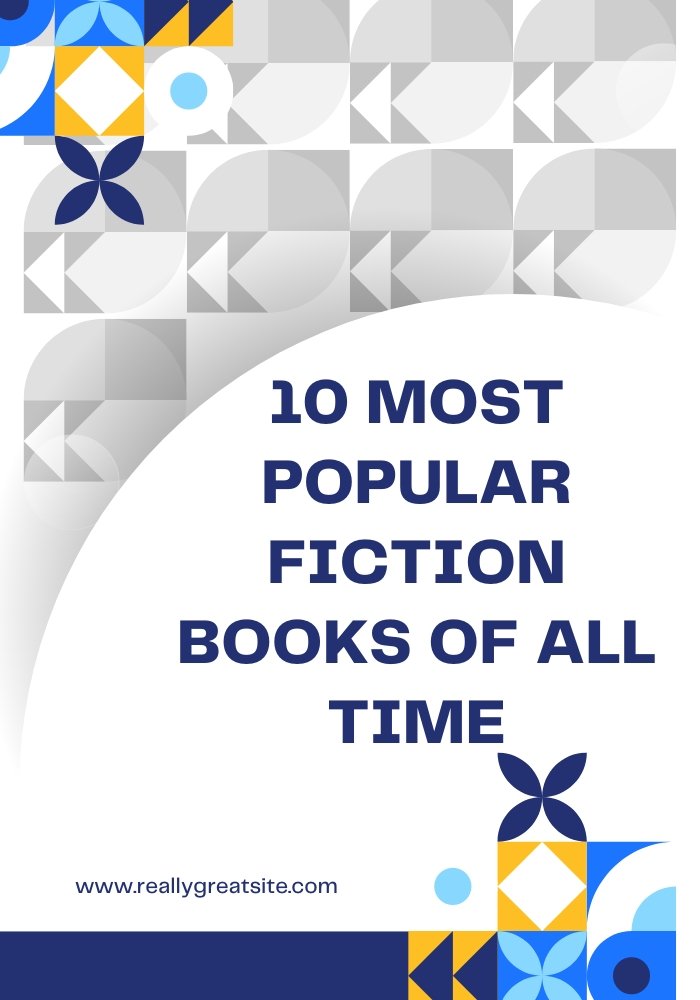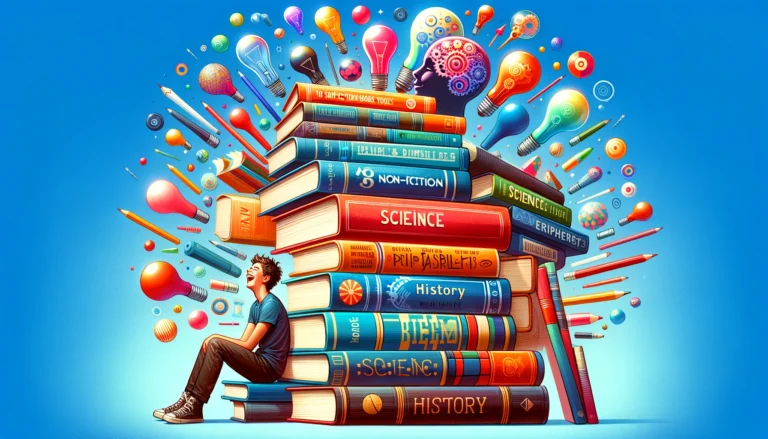Introduction:
In our relentless quest for a healthier and more fulfilling life, the labyrinth of wellness can often seem daunting. Yet, within the pages of books, we find gateways to understanding, empathy, and empowerment. This article introduces you to ten nonfiction masterpieces, each a beacon for those who cherish their health and seek to navigate the complexities of physical and emotional well-being. These books are not just about health in the conventional sense, they are about the human experience, resilience, the chemistry of our existence, and the psychological underpinnings of our beliefs and behaviors. For anyone looking to deepen their understanding of health, be it physical, mental, or emotional, these ten books offer a wealth of knowledge, stories of profound transformations, and the science behind living a balanced life.
1. The Seven Ages of Death by Dr. Richard Shepherd

Dr. Richard Shepherd, a seasoned forensic pathologist, offers a compelling look at human life through the inevitability of death in “The Seven Ages of Death.” The book explores how our bodies reflect our lives, health, and diseases. Shepherd combines emotional depth with intellectual insight, urging readers to face their mortality and appreciate the value of a purposeful, health-conscious life. This book is more than a collection of cases; it’s a reflection on the interplay between health and disease throughout our lives.
2. This Is Going To Hurt by Adam Kay

In “This Is Going to Hurt,” Adam Kay vividly shares his experiences as a junior doctor in the NHS with humor and stark honesty. The book highlights specific challenges, like the grueling hours and bureaucratic hurdles that often go unnoticed by the public. Through compelling anecdotes and arguments, Kay advocates strongly for enhanced support for healthcare systems and their staff. His stories do more than entertain; they challenge readers to rethink societal attitudes towards health and wellness. Ultimately, Kay’s narrative powerfully honors the resilience of medical professionals and emphasizes the critical need for empathy in healthcare.
3. How Minds Change: The Surprising Science of Belief, Opinion, and Persuasion by David McRaney

In “How Minds Change,” David McRaney explores how beliefs and opinions are formed and influenced. The book provides a clear analysis of persuasion’s role in shaping our perceptions across various aspects of life, not just health and wellness. McRaney captures the essence of psychological dynamics that govern changes in thought, offering insights into why we think the way we do and how we can be swayed. By examining the relationship between beliefs and actions, he encourages readers to critically assess their own views and the influences behind them. This work serves as a thought-provoking resource for anyone curious about the psychological factors that guide our decisions and shape our views.
4. Bittersweet: How Sorrow and Longing Make Us Whole by Susan Cain
 In “Bittersweet,” Susan Cain delves into how sorrow and longing enrich our lives. She argues against the sole pursuit of happiness, advocating for a deeper understanding of complex emotions that forge a meaningful existence. Cain suggests that by embracing life’s bittersweet moments, we can enhance creativity and deepen connections, ultimately enriching our well-being. Her narrative invites readers to appreciate the full range of human emotions, seeing beauty in both darkness and light. “Bittersweet” provokes thought about what truly constitutes health and happiness, distinguishing itself as a contemplative and motivating exploration of human emotional landscapes.
In “Bittersweet,” Susan Cain delves into how sorrow and longing enrich our lives. She argues against the sole pursuit of happiness, advocating for a deeper understanding of complex emotions that forge a meaningful existence. Cain suggests that by embracing life’s bittersweet moments, we can enhance creativity and deepen connections, ultimately enriching our well-being. Her narrative invites readers to appreciate the full range of human emotions, seeing beauty in both darkness and light. “Bittersweet” provokes thought about what truly constitutes health and happiness, distinguishing itself as a contemplative and motivating exploration of human emotional landscapes.
5. Happier Hour: How to Beat Distraction, Expand Your Time, and Focus on What Matters Most by Cassie Holmes

In “Happier Hour,” Cassie Holmes tackles the pervasive issue of modern distraction and disconnection. Using vivid examples from her life, alongside psychological insights, Holmes leads readers to a more focused existence. Her book delves into balancing productivity with rest, highlighting how mindfulness and intentional living are crucial for a healthy lifestyle. “Happier Hour” serves as a guide to regain control over our time and attention, providing practical strategies to counteract the forces that often disrupt our well-being. Holmes’s approach offers a fresh perspective on navigating the challenges of staying engaged in a world filled with distractions.
6. What Happened To You? Conversations on Trauma, Resilience, and Healing by Oprah Winfrey and Bruce D. Perry

In “What Happened To You?”, Oprah Winfrey and Bruce D. Perry delve into how trauma shapes behaviors and health, providing clear examples and scientific research that illuminate their discussions. They explore crucial shifts in perspective, moving from the accusatory ‘What’s wrong with you?’ to the empathetic ‘What happened to you?’, a change that promises deeper mental health understanding. These conversations, which include interactions with survivors and experts, highlight the journey towards compassion and support. The book features detailed narratives about overcoming adversity and practical advice on creating supportive environments, demonstrating how these elements contribute to recovery. Ultimately, it offers insightful strategies that not only foster empathy but also empower readers to address trauma’s profound effects on well-being.
7. The Five Invitations: Discovering What Death Can Teach Us About Living Fully by Frank Ostaseski

In “The Five Invitations,” Frank Ostaseski delves into the valuable insights on living that we can learn from contemplating death. Drawing on his roles as a Buddhist teacher and hospice caregiver, Ostaseski introduces five principles that underscore life’s transient nature. One key principle, “Welcome everything, push away nothing,” fosters a mindset of greater mindfulness and acceptance. Through compelling anecdotes and patient stories, he vividly illustrates these principles, prompting readers to deeply reflect on their lives and relationships. This book transcends the typical guide to living well, offering a powerful exploration of finding meaning and joy amidst life’s inevitable challenges. Ostaseski’s approachable yet profound narrative ensures that “The Five Invitations” stands out as a unique guide through life’s most significant questions.
8. Ingredients: The Strange Chemistry of What We Put In Us and On Us by George Zaidan

In “Ingredients,” George Zaidan delves into the chemicals and substances in our everyday products, from food to cosmetics. Using humor and scientific insight, he addresses the widespread fear of chemicals, encouraging readers to understand the science behind what we use daily. The book provides a clear view of how chemistry intersects with health, promoting informed decisions over fear-based reactions. “Ingredients” offers an engaging and educational look at the chemical makeup of our daily lives, filled with detailed explanations and captivating stories that demystify complex concepts. This work stands out as a valuable resource for those curious about the scientific foundations of health.
9. What My Bones Know: A Memoir of Healing from Complex Trauma by Stephanie Foo

In “What My Bones Know,” Stephanie Foo offers an intensely personal and detailed account of her recovery from complex PTSD. The memoir thoroughly examines the essence of trauma, highlighting unique challenges in seeking help and the profound resilience necessary to surmount them. Foo’s narrative is raw and transparent, providing an authentic insight into the difficult realities of managing and overcoming severe trauma. Her story, marked by personal discovery and vulnerability, also acts as a source of hope for others undergoing similar journeys. By sharing her experiences, Foo catalyzes important discussions on the critical roles of compassion and understanding in the healing process, establishing her memoir as essential reading for those affected by trauma.
10. Normal Family: On Truth, Love, and How I Met My 35 Siblings by Chrysta Bilton

In “Normal Family,” Chrysta Bilton delves into her unique family life, revealing that she has 35 siblings due to donor conception. The memoir vividly portrays themes of identity, belonging, and evolving family dynamics, questioning conventional definitions of family. Bilton’s narrative, infused with wit and emotional depth, provides a fresh perspective on love, truth, and connection. Her quest to find her place within a vast network of siblings offers insights into how relationships and health perceptions have transformed in the 21st century. “Normal Family” is an essential read for those fascinated by the interplay of health, genetics, and the persistent influence of love.
Conclusion:
These ten books transcend traditional health discourse, offering unique perspectives on how to approach life’s challenges with empathy, insight, and resilience. Each work, whether it’s rooted in scientific research, personal reflection, or actionable guidance, prompts us to redefine what it means to lead a holistic and healthy life, encompassing physical, mental, and spiritual wellness. Through their diverse lessons, these volumes guide readers towards a more intentional, aware, and enriched life. The strength of these narratives lies in their collective capacity to deepen our comprehension of health and inspire a shift towards a more compassionate, knowledgeable, and interconnected society.






